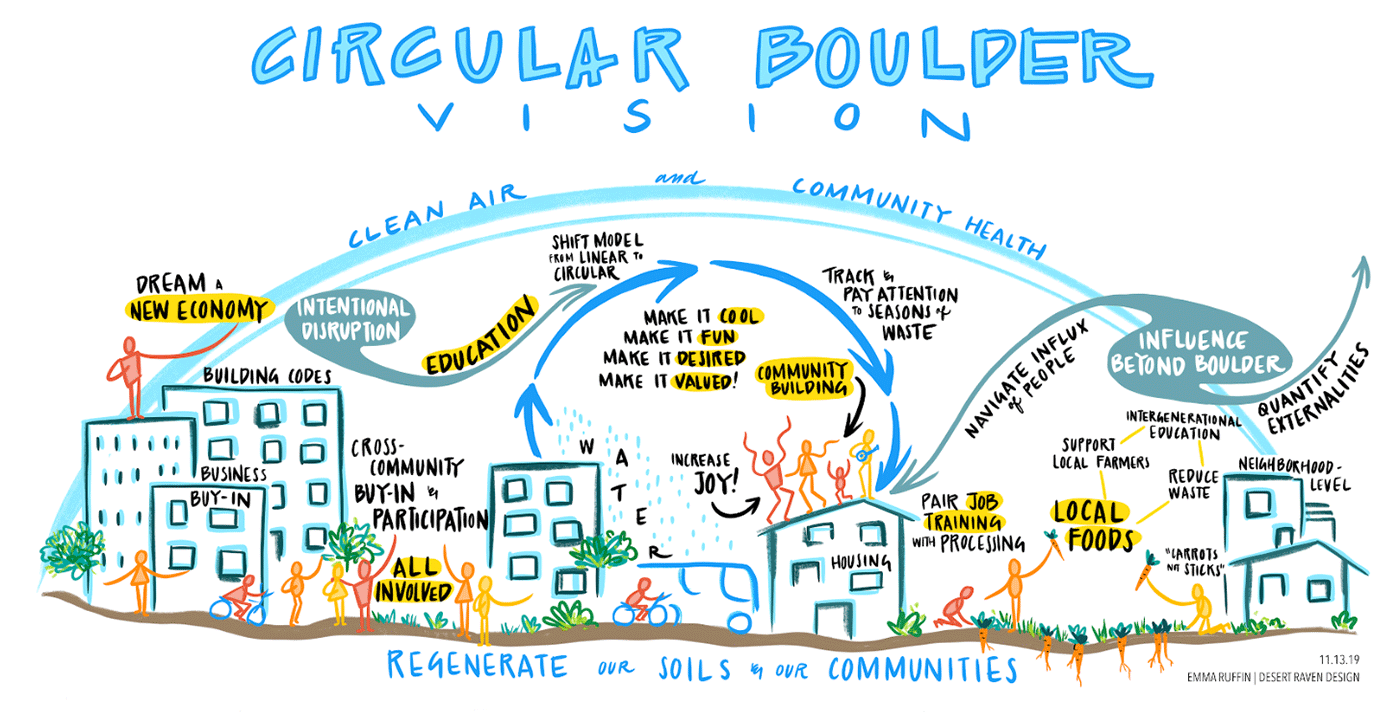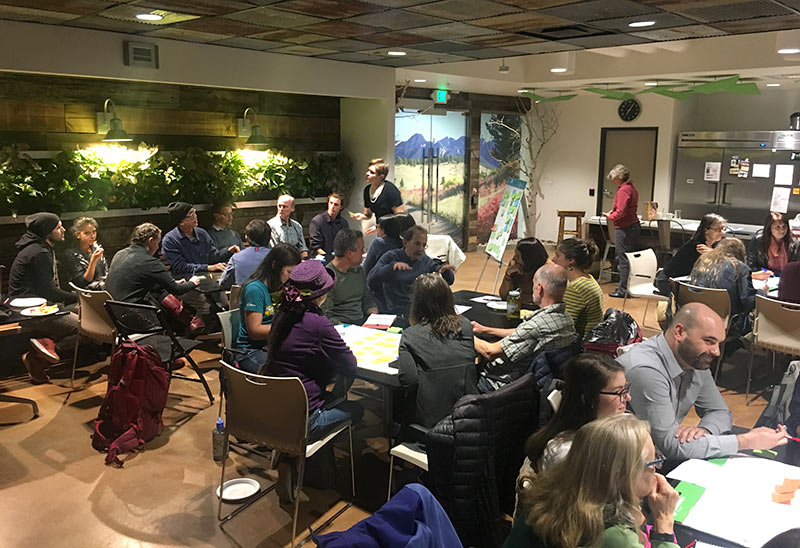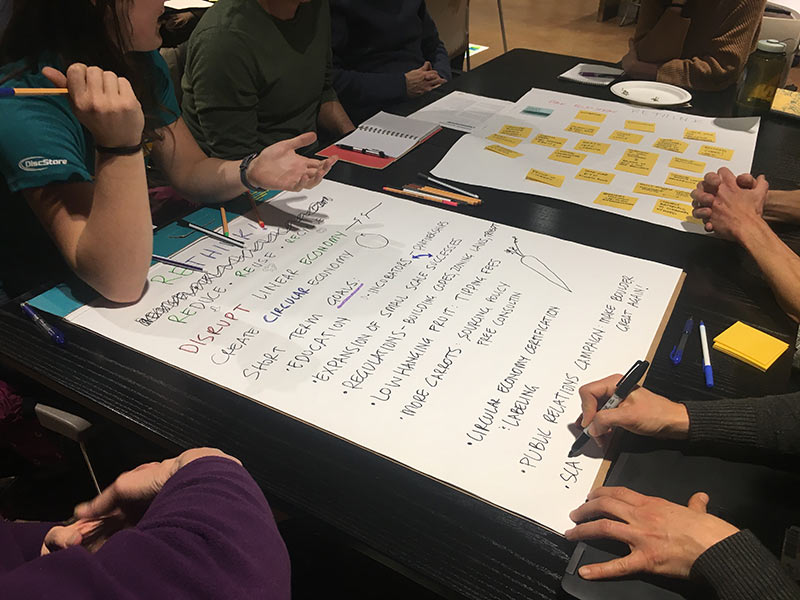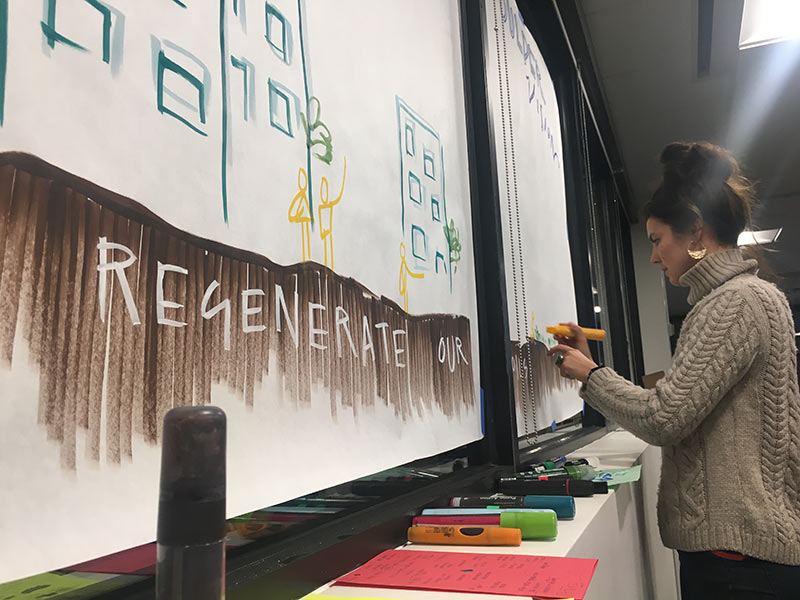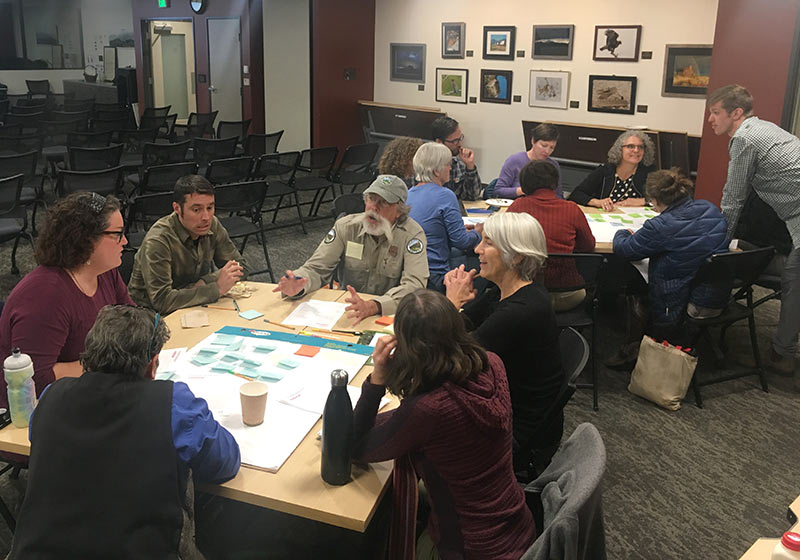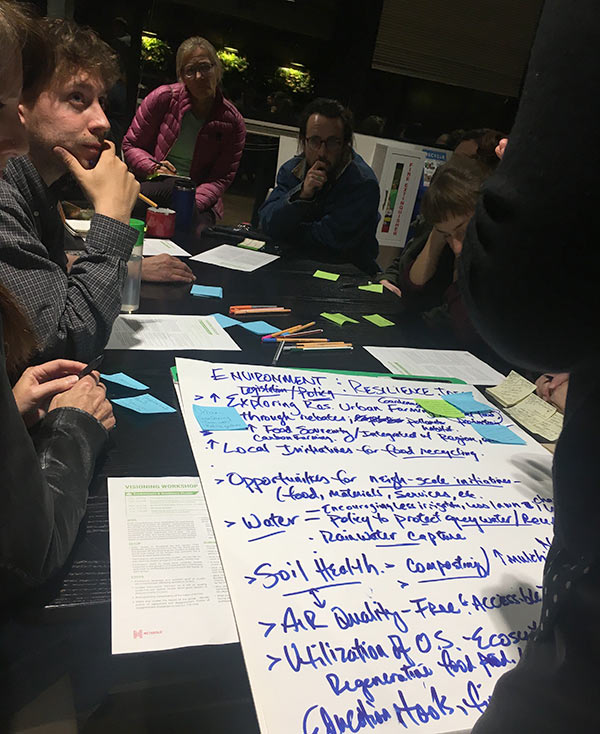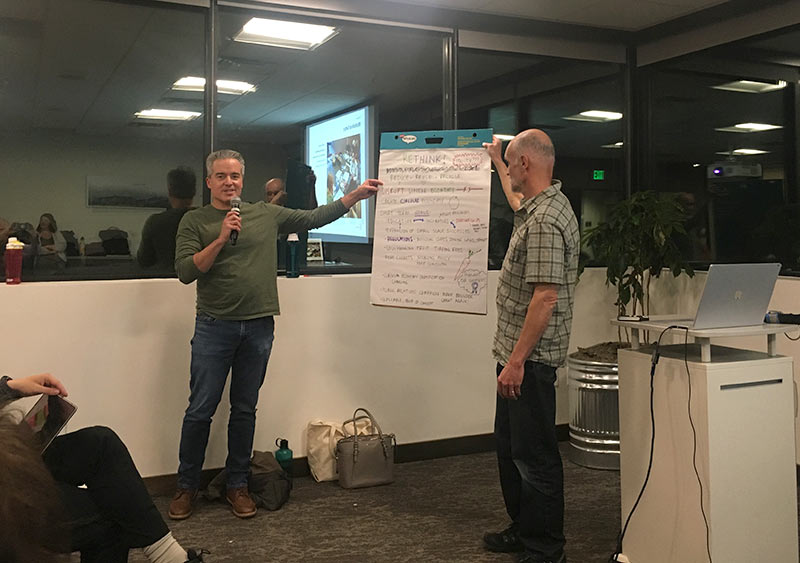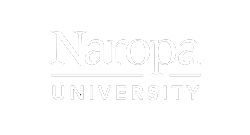Envisioning Circular Boulder: ideas to shape our sustainable future
By Shelby Condit
As a culture, we buy, use, toss and repeat. This type of linear economy pulls resources from our planet and contributes to climate change and environmental degradation.
We are in an important moment in history, a time where urgent action is needed. This is an opportunity to imagine a city (and world) that functions like an ecosystem. One without waste. One that is resilient. One that enriches the health of planet and people. This concept is why the Climate Mobilization Action Plan is exploring the idea of a circular economy, which goes beyond incremental improvement and aims for a holistic and fundamental rethinking of the way we do things.
On November 13, 2019 the City of Boulder hosted an event to brainstorm ideas for a circular Boulder. During this event, city staff and partners presented results from this work so far, introduced some of the innovative work taking place around the world, and then engaged with community members to create a vision for how this concept can come alive in Boulder.
To help shape the vision, community members split up into groups of five or six to brainstorm the Boulder they want to see over the next one to 15 years. Some ideas have the potential to become reality in the near future, such as a food waste app. Other ideas, like building a comprehensive, centralized reuse market would take more time and collaboration. But every triumph begins with one small step, and this visioning session was an inspiring way to start the journey toward a circular Boulder.
As people connected, laughed and scribbled down their ideas, Emma Ruffin of Boulder.Earth captured some of their thoughts in a graphic recording to help illustrate the holistic complexity of a circular economy.
Circularity is catching on globally, and Boulder is poised to lead the way here in Colorado and across the nation. To this end, the City of Boulder has been working with sustainability consultant Metabolic, LLC. to develop a comprehensive picture of what happens to waste in Boulder. This study has helped the city more deeply understand the current flow of materials, identify opportunities for creating less waste, and find more ways to create a less wasteful economic system. A full report will be coming out in February.
This event was part of the overall engagement efforts during development of the Climate Mobilization Action Plan, or CMAP. Boulder is already facing the effects of climate change. Because of this, City Council recently declared a climate emergency, and the city is committed to creating a new phase of community-led climate action, more ambitious than ever before. Find out more and get involved at bouldercolorado.gov/cmap

